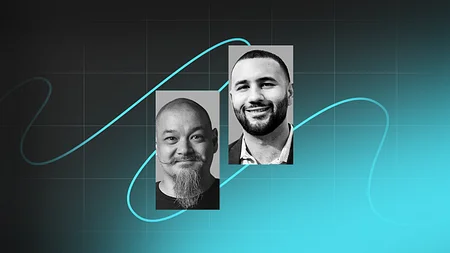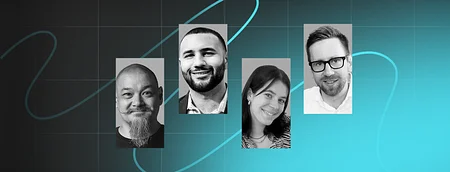“There’s not closure on this yet”: Jamie Bartlett and The Missing Cryptoqueen

Fresh off the finale of his massive hit podcast The Missing Cryptoqueen, Jamie Bartlett sits down with us to talk about Dr. Ruja, crypto scams and more.
If you’re a fan of financial podcasts – and given you’re reading this, that’s probably a safe assumption – you’ve likely heard of The Missing Cryptoqueen.
In the eight-episode BBC Sounds series, journalist Jamie Bartlett and producer Georgia Catt attempt to track down Dr. Ruja, the Bulgarian-born and Oxford-educated founder of OneCoin. Billed as a hot new crypto, OneCoin was actually a multi-billion dollar Ponzi scheme that inspired cult-like devotion from its victims before its founder’s disappearance.
The podcast’s deft combination of true crime reportage and financial savvy has struck a nerve with listeners – it’s currently featured in the New and Noteworthy section of Apple Podcasts, and it has sparked feverish discussion about Dr. Ruja's whereabouts.
Naturally, we quickly became addicted to this intriguing tale. So we were thrilled when Bartlett visited Blockchain Insider to tell us more about OneCoin, the way it exploited the language of crypto, and how it attracted such piety from its followers.
How crypto discourse hid the scam
Some listeners have told Bartlett that The Missing Cryptoqueen is an imprecise title for a podcast that revolves more around a pyramid scheme than anything related to blockchain.
But as he notes, crypto’s hype, low running costs and lack of physical product make it an ideal cover for a scam. By speaking the language of blockchain, Dr. Ruja and her partner, Sebastian Greenwood, were able to trick victims even though they knew nothing about it themselves.
Rather than exposing Dr. Ruja and Greenwood, industry discourse provided cover for them, Bartlett says. He points to the tendency for crypto evangelists to call legitimate products “scams,” arguing that it devalues the term and allows actual fraudsters to deflect outcry.
Crypto discourse ultimately led to a schism in coverage, Bartlett adds. The mainstream press figured it was a blockchain story and left it for industry journalists, who knew it was an obvious scam and declined to report on it. As a result, the story fell through the cracks and OneCoin was able to shape its own narrative.
Explaining the cult mentality
One of the series’ more intriguing aspects is the fact that, like cult members, OneCoin’s victims were often its biggest proponents. As Bartlett tells us, it’s hard to tell who were true believers and who had malicious intentions.
The podcast recounts the story of Jen McAdam, a woman from Glasgow who invested £8,000 of her own money in OneCoin. She also convinced those close to her to donate an additional £220,000, according to the BBC.
As soon as she realised she’d been scammed, she immediately stopped recruiting others and spoke out against OneCoin. But while McAdam braved threats and accusations for going public, Bartlett believes that others remained devoted to OneCoin out of “conscious avoidance.
“They don’t want to know the truth,” he says. “They avoid learning the truth because they suspect it’s probably a scam but they don’t actually want to know”.
Misinformation also played a significant role. Leaders of the scam told McAdam that Bitcoin advocates and Google were spreading fake news about OneCoin, Bartlett says, and there were other instances of cult-like behaviour as well.
There’s more to the story…
“Clearly, for anyone who’s listened, there’s not closure on this yet,” Bartlett says. On the podcast, he mentions that he’s wary of putting out another episode that fails to locate Dr. Ruja.
Still, there are other parts of the story that remain unreported.
Afraid of losing Dr. Ruja's trail, the team constantly considered what to include and omit from the podcast. In a few instances, they believed they were close to tracking her down.
“We were always playing a difficult game of telling the story in real time, but we thought we might actually find her in Frankfurt,” says Bartlett. “And so we didn’t want to reveal too much in case she was listening and then just vanished”.
The hope, Bartlett says, was to actually bump into Dr. Ruja on the street. Which begs the question: what would he do if he did find her?
To hear Bartlett’s full conversation with Simon Taylor, including details about how the scam could’ve been prevented and whether the team ever felt threatened while reporting the story, download episode 325 of Blockchain Insider, or take a listen here.


